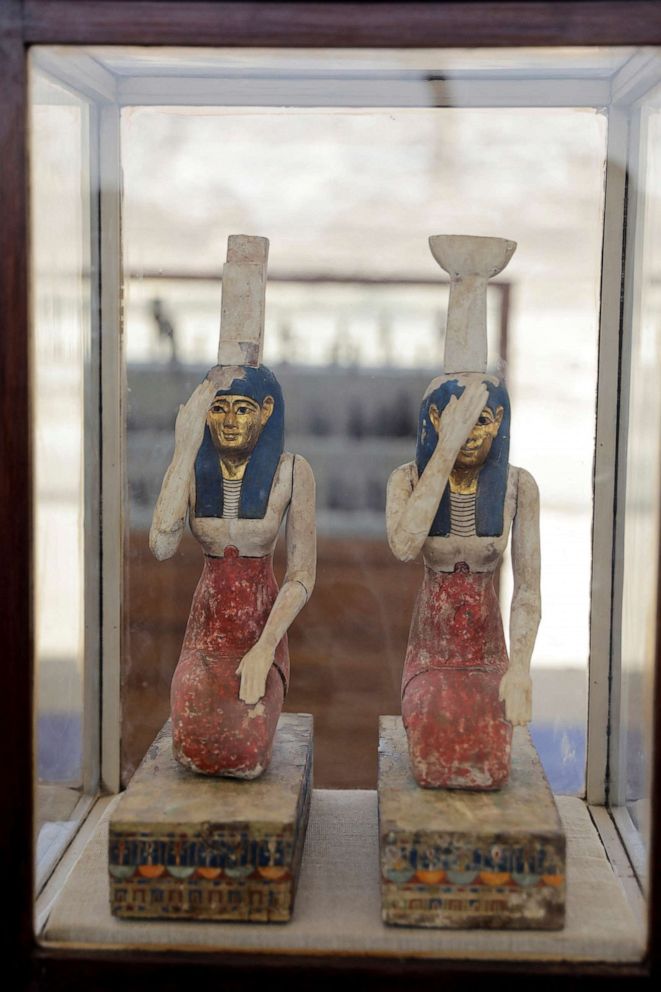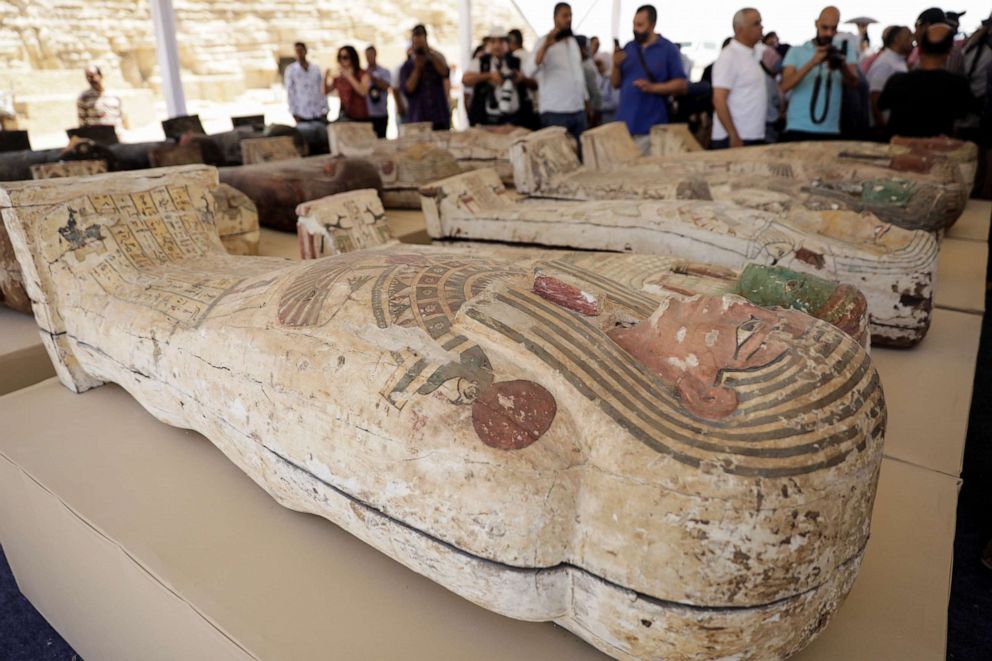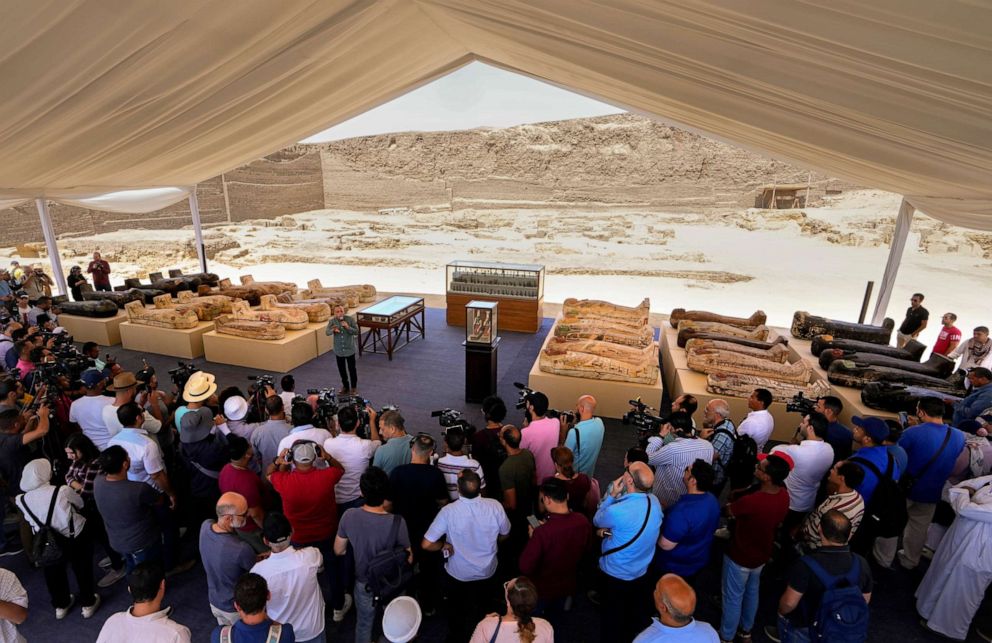Egypt uncovers 2,500-year-old coffins, bronze statues in ancient necropolis
The find in Saqqara included 150 bronze statues of ancient Egyptian deities.
SAQQARA, Egypt -- Egypt has uncovered 2,500-year-old wooden coffins and bronze statues in the ancient necropolis of Saqqara, the country announced on Monday, as it hopes a string of discoveries will help revive its ailing tourism industry.
Two months after five ancient tombs were found nearby, Egypt excavated more treasures as it continues its extensive digging operations in the ancient burial ground, some 19 miles south of Cairo.
Mostafa El-Waziri, the head of Egypt's Supreme Council of Antiquities, told reporters at the scene that the "biggest bronze cachette" was unearthed in the Bubastian cemetery, which is named after the ancient goddess of Bastet that was often depicted as a cat-headed woman.

The cachette included 150 bronze statues of ancient Egyptian deities including Bastet, Anubis, Osiris, Amunmeen, Isis, Nefertum and Hathor.
"We also found a statue of Imhotep … and we hope we can find his tomb soon," El-Waziri added, referring to a well-known architect who is widely believed to have designed the 4,700-year-old step pyramid in the 27th century B.C.
Three weeks after that discovery, Egypt uncovered two burial shafts that included 250 wooden painted coffins, with mummies inside, El-Waziri said. The coffins also date back to the late period, or about 747 B.C. to 332 B.C.
One of the highlights was the discovery of the "first intact papyrus in over 100 years," which may contain verses of the Book of the Dead, a collection of funerary texts containing spells to help the deceased navigate the afterlife.

"Preliminary findings suggest that the papyrus, which is rolled, is nine meters. It was sent to the labs of the Egyptian Museum (in Cairo's Tahrir square) for more studies," El-Waziri added.
He then displayed a small statue of Bastet, which he said "shows the beauty of Egyptian women," as it was found along with a collection of cosmetics including combs, bracelets and earrings.
"Look at how she is standing and the purse she is holding. This is how ancient Egyptians showed to us the beauty of Egyptian women," El-Waziri said.
Egypt's digging operations in Saqqara had resulted in a string of discoveries in recent years, including the unearthing of a 4,400-year-old tomb of royal priest Wahtye in 2018 and the discovery of hundreds of mummified animals and statues a year later.

Last year, Egypt unearthed 52 burial shafts in Saqqara with more than 50 wooden coffins found inside. They date back 3,000 years, the oldest sarcophagi found there.
They also discovered the funerary temple of Queen Nearit, the wife of King Teti -- the first pharaoh of the Sixth Dynasty of Egypt.
Egyptian tourism was badly affected by the COVID-19 pandemic and took a fresh battering because of Russia's war in Ukraine, with citizens of both countries comprising a big chunk of visitors to Egypt.






